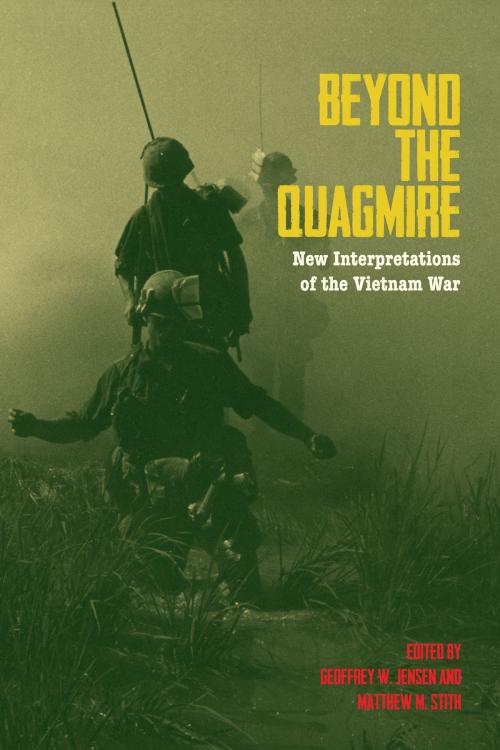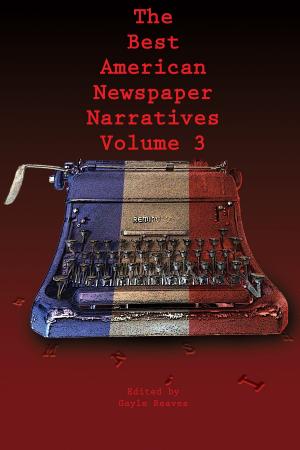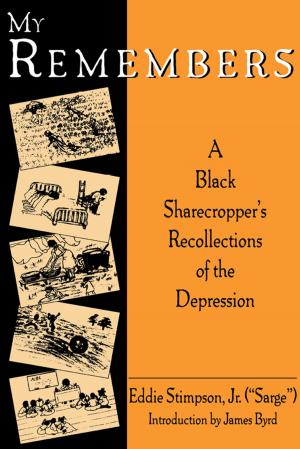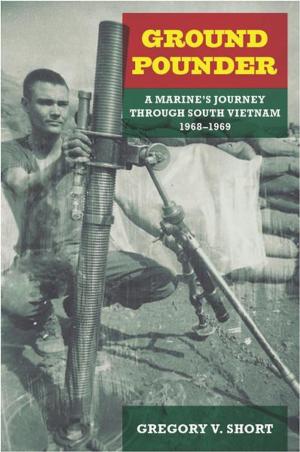Beyond the Quagmire
New Interpretations of the Vietnam War
Nonfiction, History, Military, Vietnam War, Asian, United States| Author: | ISBN: | 9781574417586 | |
| Publisher: | University of North Texas Press | Publication: | March 15, 2019 |
| Imprint: | Language: | English |
| Author: | |
| ISBN: | 9781574417586 |
| Publisher: | University of North Texas Press |
| Publication: | March 15, 2019 |
| Imprint: | |
| Language: | English |
In Beyond the Quagmire, thirteen scholars from across disciplines provide a series of provocative, important, and timely essays on the politics, combatants, and memory of the Vietnam War. Americans believed that they were supposed to win in Vietnam. As veteran and Pulitzer Prize-winning author Philip Caputo observed in A Rumor of War, “we carried, along with our packs and rifles, the implicit convictions that the Viet Cong would be quickly beaten and that we were doing something altogether noble and good.” By 1968, though, Vietnam looked less like World War II’s triumphant march and more like the brutal and costly stalemate in Korea. During that year, the United States paid dearly as nearly 17,000 perished fighting in a foreign land against an enemy that continued to frustrate them. Indeed, as Caputo noted, “We kept the packs and rifles; the convictions, we lost.” It was a time of deep introspection as questions over the legality of American involvement, political dishonesty, civil rights, counter-cultural ideas, and American overreach during the Cold War congealed in one place: Vietnam. Just as Americans fifty years ago struggled to understand the nation’s connection to Vietnam, scholars today, across disciplines, are working to come to terms with the long and bloody war—its politics, combatants, and how we remember it. The essays in Beyond the Quagmire pose new questions, offer new answers, and establish important lines of debate regarding social, political, military, and memory studies. The book is organized in three parts. Part 1 contains four chapters by scholars who explore the politics of war in the Vietnam era. In Part 2, five contributors offer chapters on Vietnam combatants with analyses of race, gender, environment, and Chinese intervention. Part 3 provides four innovative and timely essays on Vietnam in history and memory. In sum, Beyond the Quagmire pushes the interpretive boundaries of America’s involvement in Vietnam on the battlefield and off, and it will play a significant role in reshaping and reinvigorating Vietnam War historiography.
In Beyond the Quagmire, thirteen scholars from across disciplines provide a series of provocative, important, and timely essays on the politics, combatants, and memory of the Vietnam War. Americans believed that they were supposed to win in Vietnam. As veteran and Pulitzer Prize-winning author Philip Caputo observed in A Rumor of War, “we carried, along with our packs and rifles, the implicit convictions that the Viet Cong would be quickly beaten and that we were doing something altogether noble and good.” By 1968, though, Vietnam looked less like World War II’s triumphant march and more like the brutal and costly stalemate in Korea. During that year, the United States paid dearly as nearly 17,000 perished fighting in a foreign land against an enemy that continued to frustrate them. Indeed, as Caputo noted, “We kept the packs and rifles; the convictions, we lost.” It was a time of deep introspection as questions over the legality of American involvement, political dishonesty, civil rights, counter-cultural ideas, and American overreach during the Cold War congealed in one place: Vietnam. Just as Americans fifty years ago struggled to understand the nation’s connection to Vietnam, scholars today, across disciplines, are working to come to terms with the long and bloody war—its politics, combatants, and how we remember it. The essays in Beyond the Quagmire pose new questions, offer new answers, and establish important lines of debate regarding social, political, military, and memory studies. The book is organized in three parts. Part 1 contains four chapters by scholars who explore the politics of war in the Vietnam era. In Part 2, five contributors offer chapters on Vietnam combatants with analyses of race, gender, environment, and Chinese intervention. Part 3 provides four innovative and timely essays on Vietnam in history and memory. In sum, Beyond the Quagmire pushes the interpretive boundaries of America’s involvement in Vietnam on the battlefield and off, and it will play a significant role in reshaping and reinvigorating Vietnam War historiography.















